.png)

Belgium 10-3-26 All Members Physical english
From modular business design to AI-driven pipelines, architectures, and operationsA composable enterprise is built on modular processes, API-driven ecosystems, low-code platforms, and cloud-native services. It promises speed and adaptability by allowing organisations to reconfigure their capabilities as conditions change. However, modular design alone does not guarantee resilience; the way these systems are engineered and operated is just as important.This is where AI is beginning to make a difference. Beyond generating snippets of code, AI is already influencing how entire systems are developed and run: accelerating CI/CD pipelines, improving test coverage, optimising Infrastructure-as-Code, sharpening observability, and even shaping architectural decisions. These changes directly affect how quickly new business components can be deployed, connected, and retired.In this session, we will examine how CIOs can bring these two movements together:Composable design is the framework for flexibility and modularity.AI-augmented engineering is the force that delivers the speed, quality, and intelligence needed to sustain it.The pitfalls of treating them in isolation: composability that collapses under slow engineering cycles, or AI that only adds complexity without a modular structure.The discussion goes beyond concepts to practical implications: how to architect organisations that can be recomposed at speed, without losing control or reliability. The outcome is an enterprise that is not only modular in design but also engineered to adapt continuously under real-world conditions.
Read More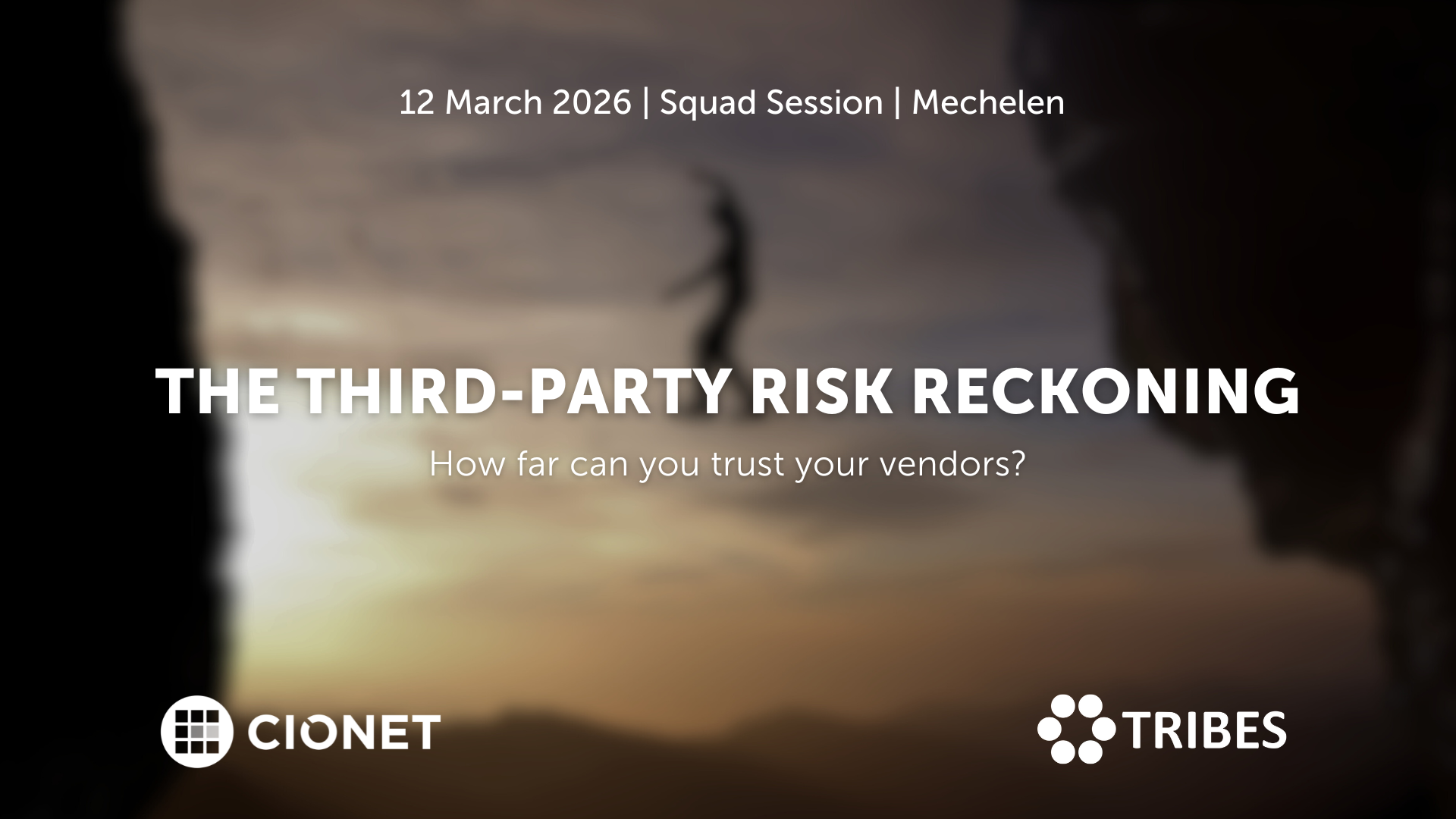
Belgium 12-3-26 Physical english
Tomato! Tomato! Tomato! Get your tomato now! Every vendor sells security. And every company depends on vendors, partners, and suppliers. The more digital the business becomes, the longer that list grows, and so does the attack surface. One weak link, and there is always one, or one missed update, and trust collapses faster than any firewall can react. What used to be a procurement checklist has become a full-time discipline. Questionnaires, audits, and endless documentation prove that everyone’s “compliant,” yet incidents keep happening. So it’s clear: the issue isn’t lack of policy, or maybe a bit, but mostly lack of visibility. Beyond a certain point, even the most secure organisation is only as safe as its least prepared partner (or an employee who hadn’t had their morning coffee). So how far can you trust your vendors? How do you check what you can’t control? And when does assurance become theatre instead of protection? Does it come at a different cost? Let’s exchange what works and what fails in third-party risk management: live monitoring, shared responsibility models, contractual levers, and the reality of building trust in a chain you don’t own. A closed conversation for those redefining what partnership means when risk is shared but accountability isn’t.
Read More.jpg)
Belgium 19-3-26 Country Members Physical french
Moins de Partenaires : La consolidation vaut-elle le risque ? Le problème est la prolifération des fournisseurs : trop d'outils causant de la complexité, une taxe d'intégration paralysante et de la redondance. La Taxe d'Intégration est le coût caché (en temps, en échecs et en ressources) d'essayer de faire fonctionner ensemble des systèmes disparates. Cet échange se concentre sur des stratégies éprouvées pour simplifier de manière agressive le parc technologique, consolider les fournisseurs et élever certains fournisseurs clés au rang de partenaires stratégiques.
Read More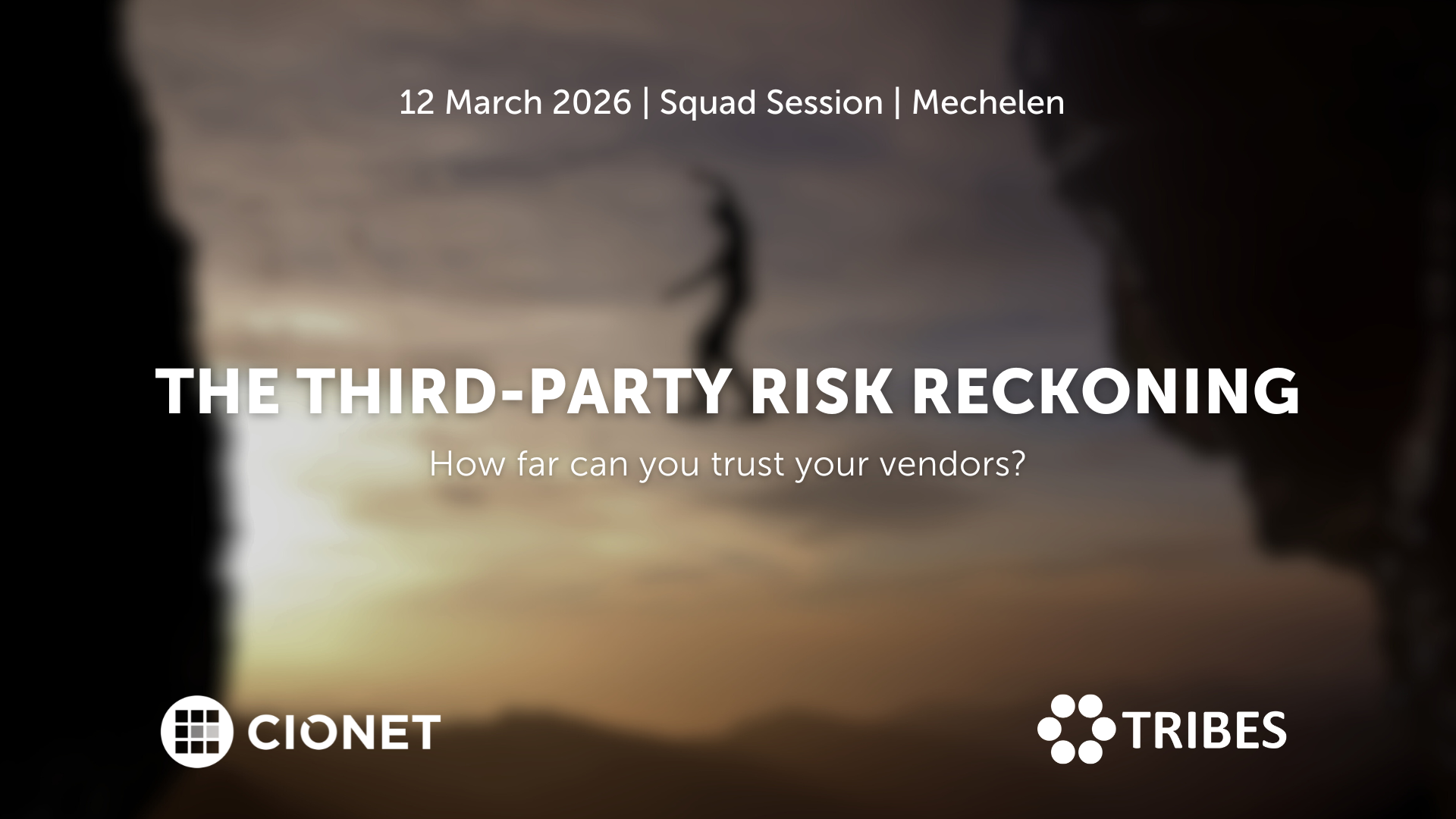
March 12, 2026 Squad Session Invitation Only Physical english
Tomato! Tomato! Tomato! Get your tomato now! Every vendor sells security. And every company depends on vendors, partners, and suppliers. The more digital the business becomes, the longer that list grows, and so does the attack surface. One weak link, and there is always one, or one missed update, and trust collapses faster than any firewall can react.
Read More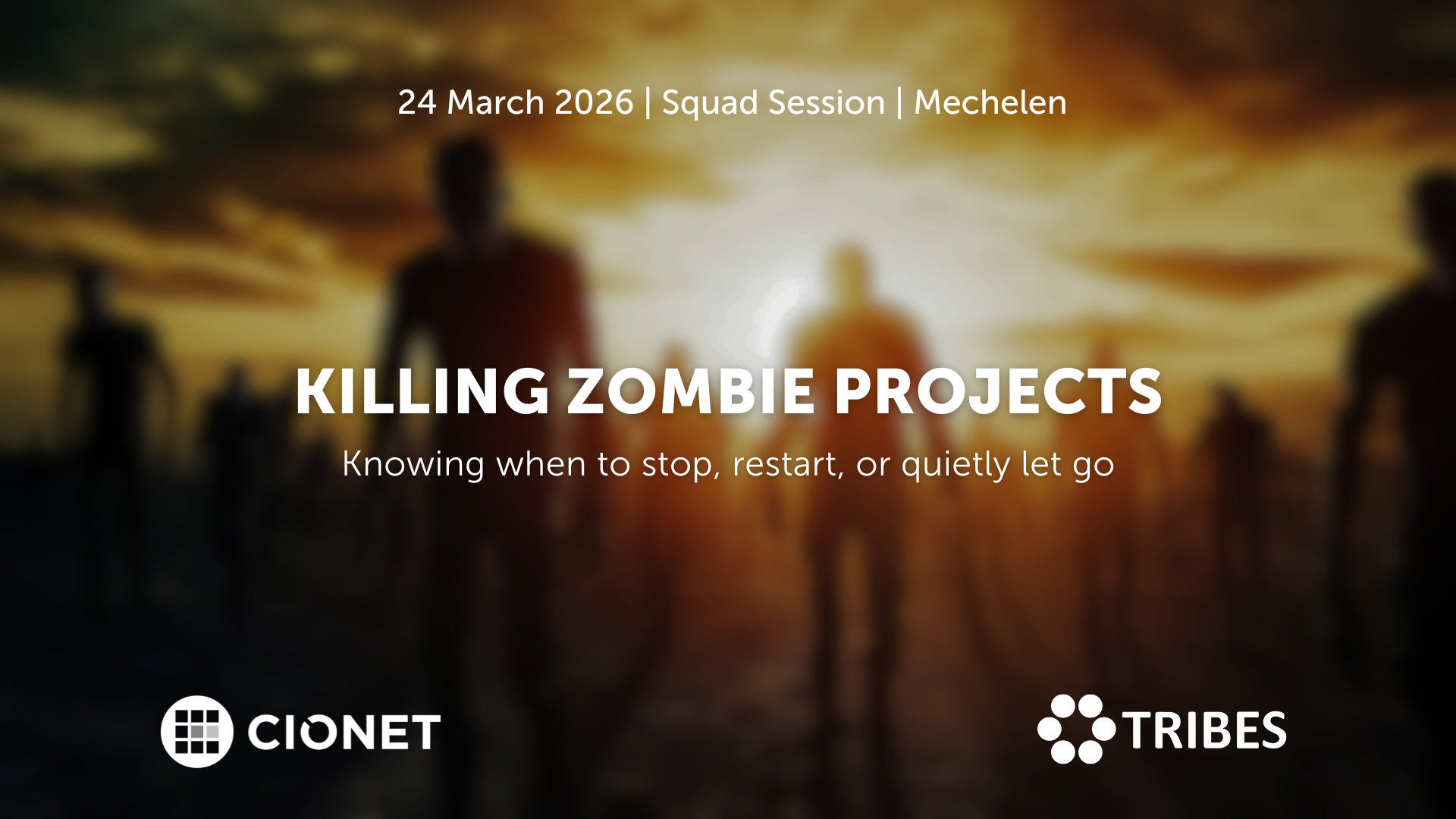
March 24, 2026 Squad Session Invitation Only Physical english
Every organisation has them, projects that keep running long after their purpose has faded. No one remembers who asked for them, but shutting them down feels riskier than keeping them alive. And eventually, people stay assigned, budgets stay allocated, and energy drains into work that no longer matters. Inertia at its finest.
Read More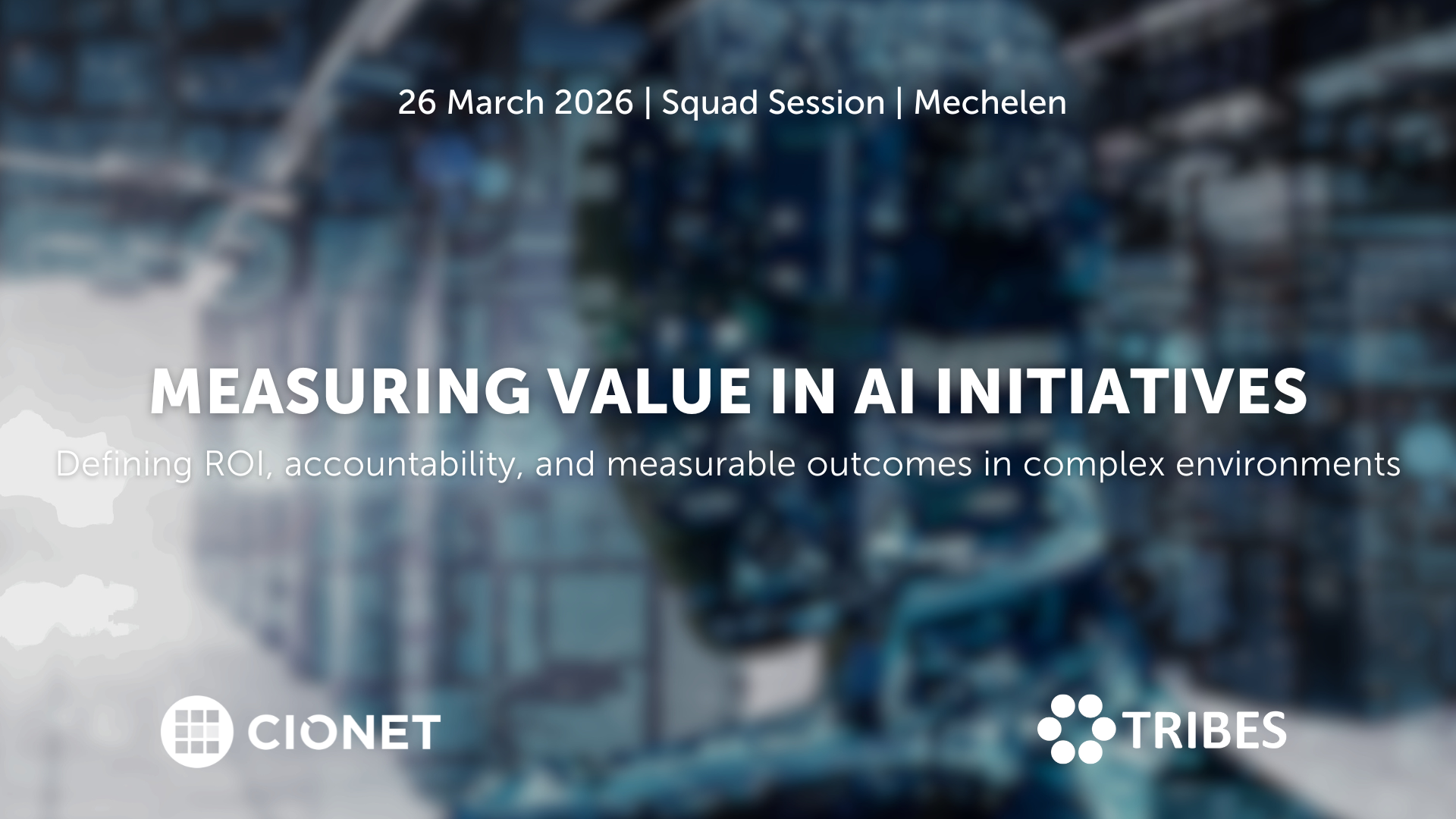
March 26, 2026 Squad Session Invitation Only Physical english
AI projects continue to multiply, but proving their value remains difficult. Most organisations can track activity, not impact. Dashboards count pilots and models, yet few translate to measurable business outcomes. The result is familiar: success stories without clarity on what they actually delivered.
Read More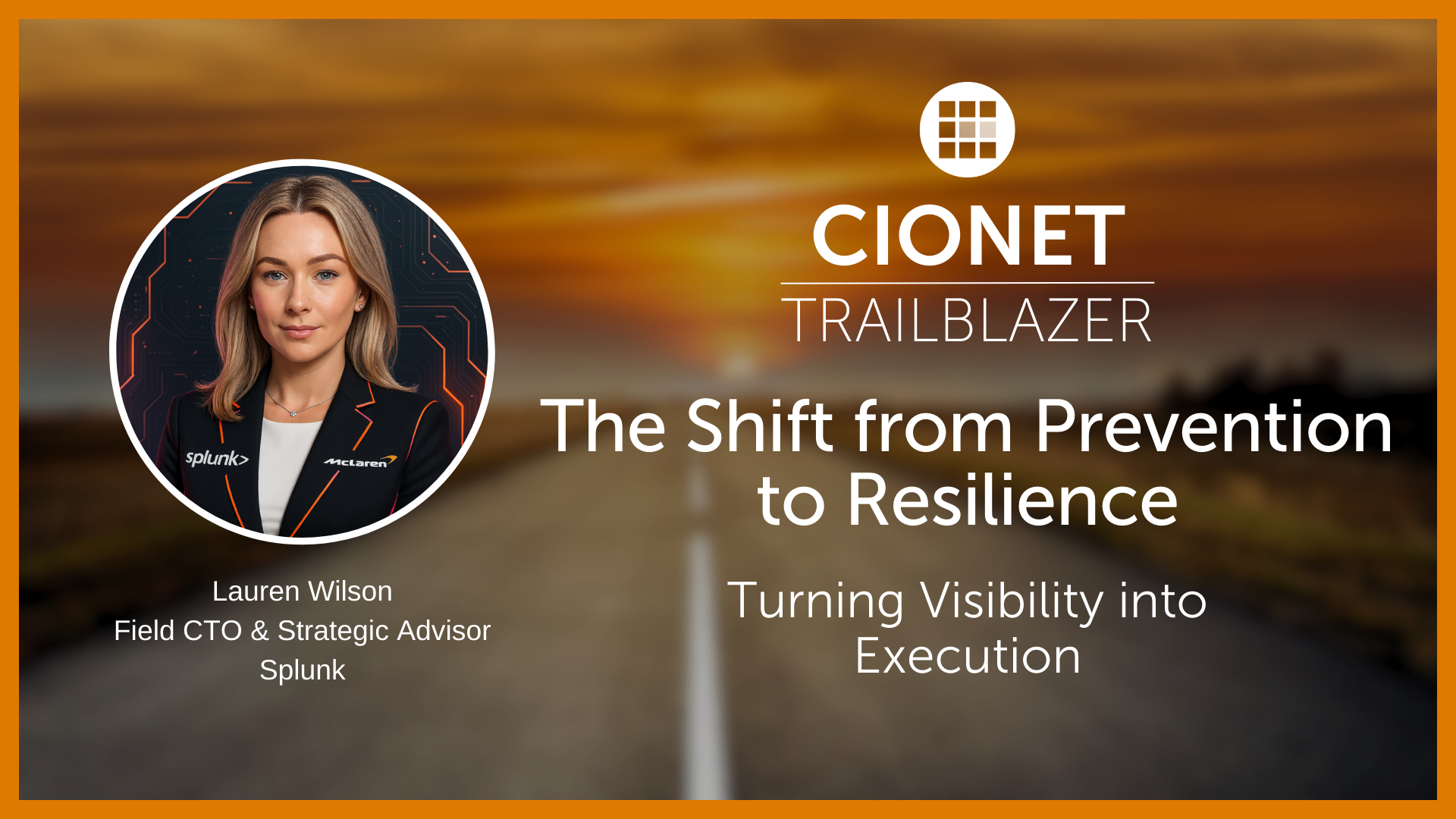
CIONET Trailblazer: CISO: The Shift from Prevention to Resilience: Turning Visibility into Execution
Published on: January 28, 2026 @ 9:48 AM

CIONET Trailblazer: AI Transformation: Bridging the Cultural Divide to Achieve Competitive Advantage
Published on: December 17, 2025 @ 9:16 AM
Picanol Group finds flexibility and faster time to market with Azure Stack
Picanol - the Belgian manufacturer of weaving machines provides weaving technology for the textile industry and beyond. The group launched its Factory 4.0 strategy and adopted Microsoft's Azure Stack HCI infrastructure with Azure Arc support to achieve centralised management, flexibility and faster time-to-market.
We wanted to manage our whole environment with a single solution. That’s what we got with Azure Stack HCI—the flexibility to run workloads in the cloud or on-premises and decide at each moment where we want our resources.Marc Colman: IT Infrastructure Manager - Picanol Group
With production facilities in Belgium, Romania, and China, Picanol Group is evolving its manufacturing capabilities to foster innovation. Its Factory 4.0 strategy promotes tighter integration between IT and operations to deliver smarter, technology-led solutions that help drive the business. Marc Colman, IT Infrastructure Manager at Picanol Group, states, “Our robotics produce a lot of data, which we can use to make smarter decisions about how our machines should work and how to better manage storage and shipping. We always want to know where we can automate or do something better, faster, and with fewer errors, and that’s where IT and the business go hand in hand. We’re trying to do as much as possible driven by IT to make the new Factory 4.0.”
To enhance innovation, Picanol Group needed flexibility within its digital infrastructure. Its environment consisted of on-premises Hyper-V plus an Azure Stack Hub cloud implementation, which the group added to run services required by the business but unattainable through aging, on-premises hardware. Picanol Group needed to retain and manage on-premises workloads because it could not risk dropped connectivity at its production facilities, which would leave 1,500 workers idle, and some of its vendors only ran on VMware. But the group also needed a solution that offered the versatility of the cloud. Azure Stack HCI is Arc enabled infrastructure that uses hyperconverged infrastructure (HCI) and is delivered as an Azure service.
John Debersaques, Senior System Engineer at Picanol Group, says, “We buy manufacturing equipment that lasts for 30 years, and the vendors usually aren’t willing to invest in upgrades. We use Azure Stack HCI so that we can run those legacy workloads on-premises.”
Also, Picanol Group’s hybrid state required separate management for each of its environments. Establishing unified visibility across its infrastructure would help the group make smart decisions faster. Colman recounts, “We wanted to manage our whole environment with a single solution. That’s what we got with Azure Stack HCI—the flexibility to run workloads in the cloud or on-premises and decide at each moment where we want our resources.”
Through its Azure Stack HCI implementation, Picanol Group manages a 12-node cluster in Belgium with 670 terabytes on SSD storage and a 4-node cluster in Romania with 84 terabytes on SSD storage. It runs more than 200 virtual machines (VMs) between both locations. In its Microsoft Cloud environment, Picanol Group has deployed Dynamics 365 Finance and Dynamics 365 Customer Service, along with Microsoft 365, including SharePoint and OneDrive. In addition to these services, Picanol Group runs all its Hyper-V virtual machines on Azure Stack HCI.
In terms of security, Picanol Group has completely separated its on-premises and cloud environments, which allows it to take advantage of Microsoft security features for its Azure implementation. Debersaques states, “We really benefit from the ability to just go to the Azure portal and get a clear idea of what’s going on in our cluster at any moment, like checking for security alerts and available updates.”
Using Azure Stack HCI makes it easier for Picanol Group to manage its hybrid environment and find the flexibility it needs to meet its business innovation requirements. Debersaques continues, “Azure Stack HCI with its native integration with Azure Arc, helps us bring new Azure services, like Azure Logic Apps, to our on-premises workloads and move managed databases between on-premises and the cloud. And because Azure Stack HCI is a managed environment, we get continuous updates and the ability to build new features.”
Picanol Group’s new centralized management through Azure Stack HCI gives its employees greater visibility and assurance with less effort. “We’re a company of 2,500 people spread across the world, with 1,500 production employees depending on our IT systems—and an infrastructure team of 5,” says Debersaques. “It’s incredibly important to have that single-pane-of-glass visibility with Azure Stack HCI, so we can manage our environment proactively.”
These operational improvements translate to significant business benefits. Picanol Group now does more, faster. Colman states, “We’ve improved our flexibility, time to market, and costs. With Azure Stack HCI, we can build up quickly in the cloud and then move workloads back on-premises depending on cost.” This helps Picanol Group offer lightning-fast time to market to support key business initiatives and puts the group in the driver’s seat with the power to move workloads between the cloud and on-premises as cost and business priorities dictate. “With Azure Stack HCI, we have the agility to provide what the business wants and needs and to move faster to market,” says Colman.
Picanol Group has positioned itself to make the most of technology advancements as they become available. The group can evaluate Azure feature enhancements and other new developments on an ongoing basis and shift to a continuous improvement and DevOps approach. Indeed, Picanol Group’s infrastructure team is already fielding requests for microservices and containers from various development groups.
Having the flexibility required to develop innovative solutions faster to meet business challenges as they emerge is vital for Picanol Group as it pivots into Factory 4.0. Colman concludes, “Our on-premises hardware environment had reached end of life, but we couldn’t fully move to the cloud. We struck the perfect balance with Azure Stack HCI. We have the flexibility we need to move between the cloud and our on-premises environment, and to add the resources we need as we need them, where we want them, and at the lowest cost, to best serve the business.”
With Azure Stack HCI, we have the agility to provide what the business wants and needs and to move faster to market.Marc Colman: IT Infrastructure Manager
Picanol Group
332 Views 0 Likes Read More
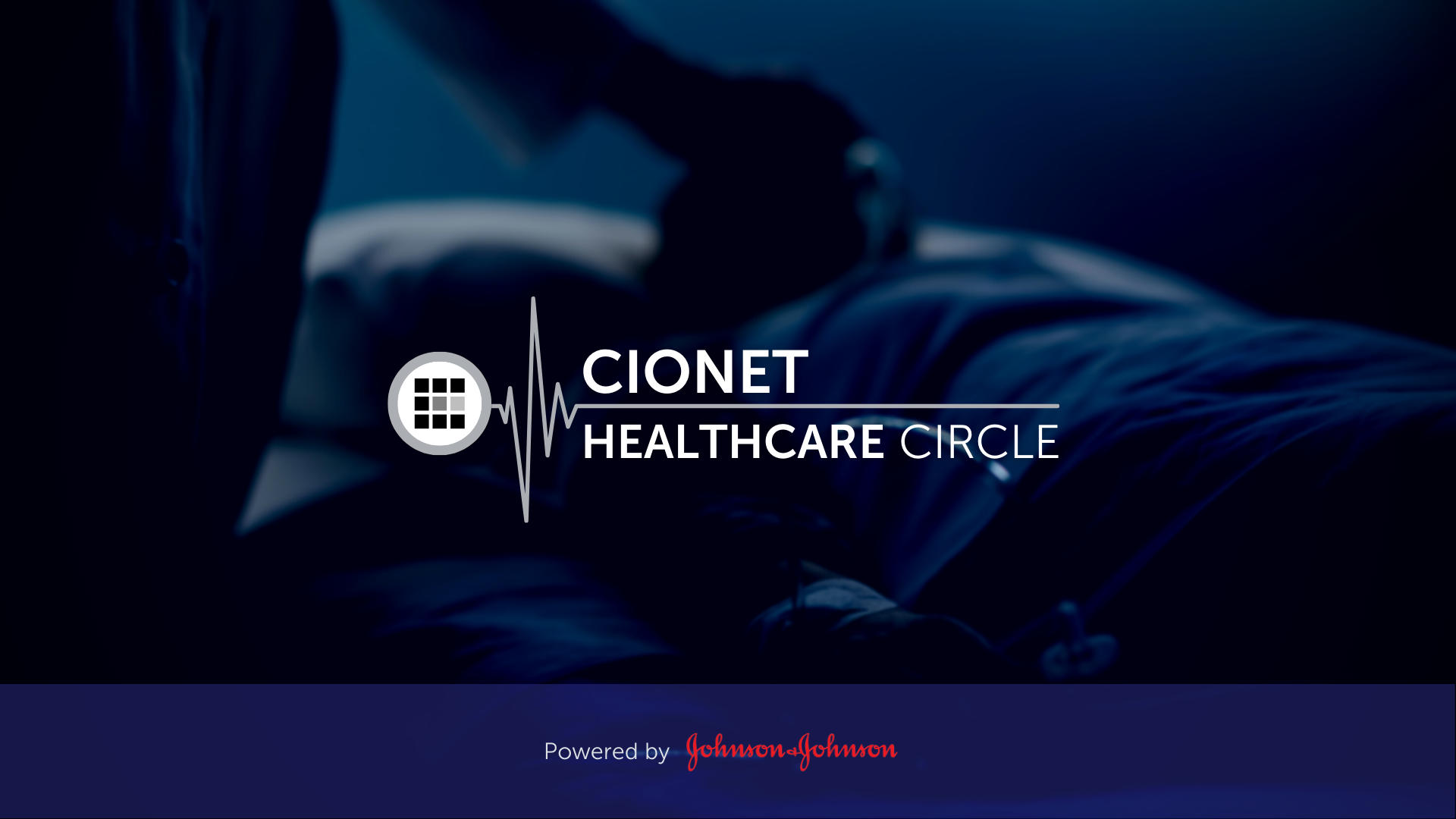
Digital Transformation is redefining the future of health care and health delivery. All stakeholders are convinced that these innovations will create value for patients, healthcare practitioners, hospitals, and governments along the patient pathway. The benefits are starting from prevention and awareness to diagnosis, treatment, short- and long-term follow-up, and ultimately survival. But how do you make sure that your working towards an architecturally sound, secure and interoperable health IT ecosystem for your hospital and avoid implementing a hodgepodge of spot solutions? How does your IT department work together with the other stakeholders, such as the doctors and other healthcare practitioners, Life Sciences companies, Tech companies, regulators and your internal governance and administrative bodies?
Read More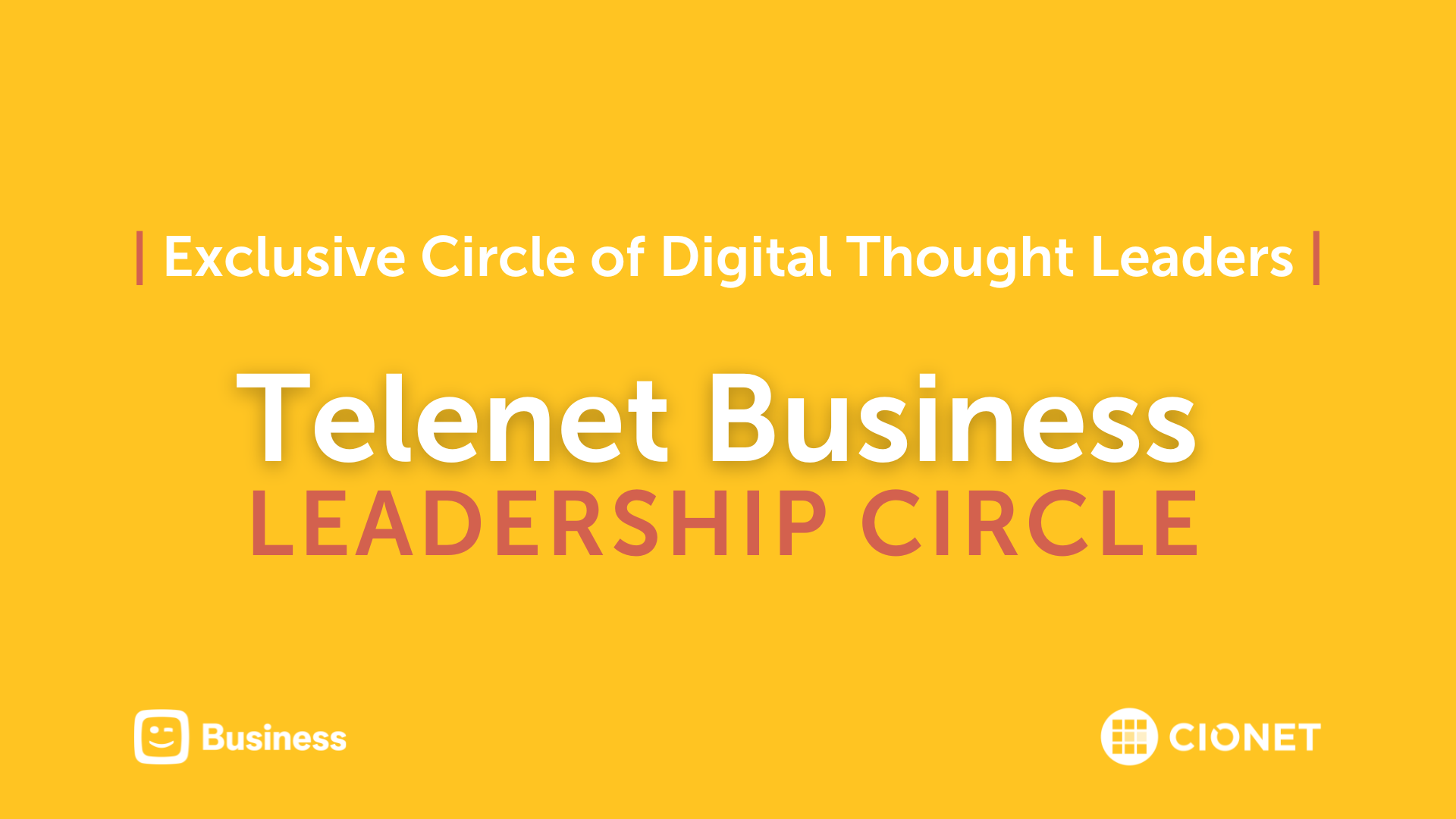
The Telenet Business Leadership Circle powered by CIONET, offers a platform where IT executives and thought leaders can meet to inspire each other and share best practices. We want to be a facilitator who helps you optimise the performance of your IT function and your business by embracing the endless opportunities that digital change brings.
Read More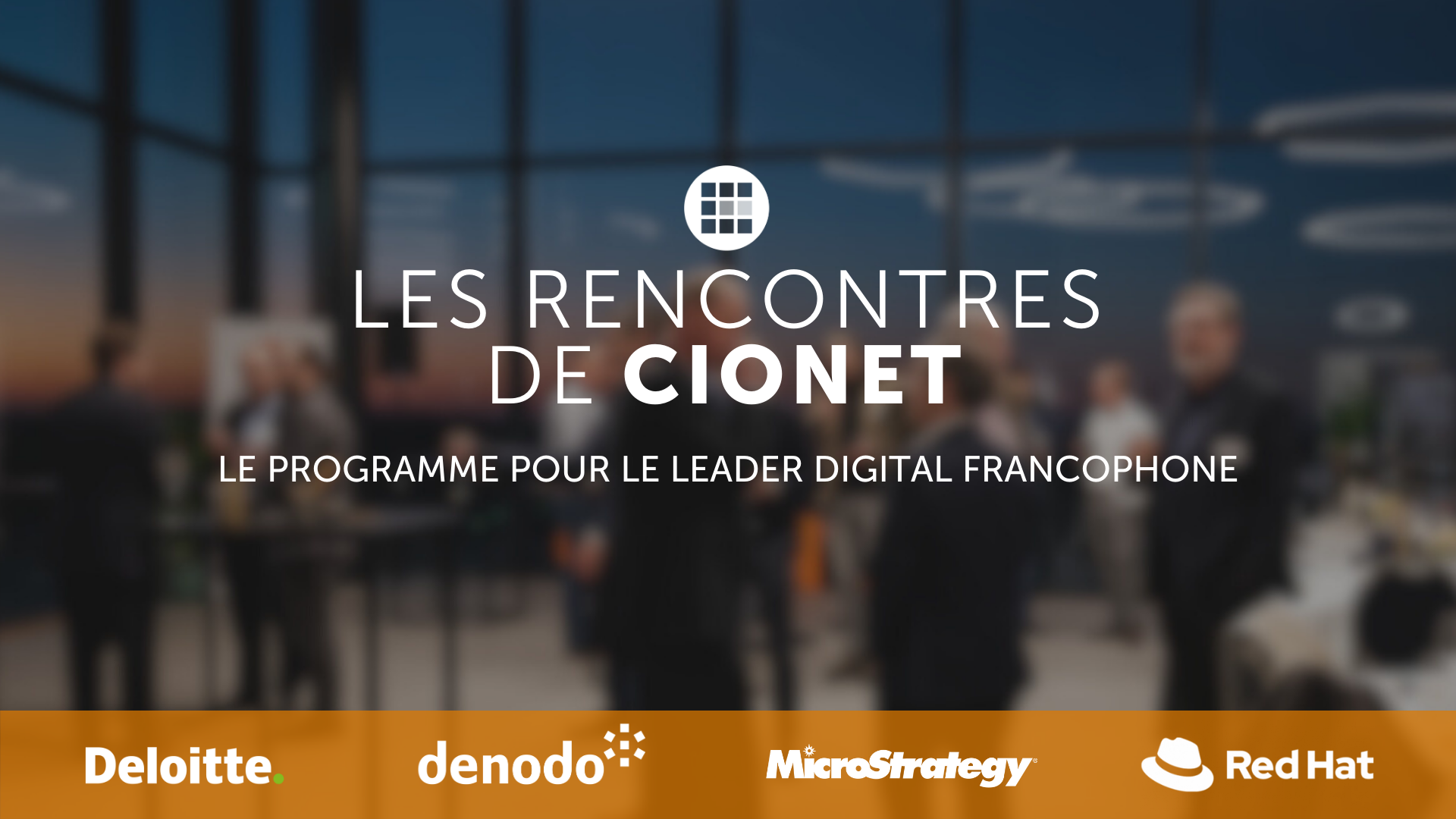
Découvrez la dynamique du leadership numérique aux Rencontres de CIONET, le programme francophone exclusif de CIONET pour les leaders numériques en Belgique, rendu possible grâce au soutien et à l'engagement de nos partenaires de programme : Deloitte, Denodo et Red Hat. Rejoignez trois événements inspirants par an à Liège, Namur et en Brabant Wallon, où des CIOs et des experts numériques francophones de premier plan partagent leurs perspectives et expériences sur des thèmes d'affaires et de IT actuels. Laissez-vous inspirer et apprenez des meilleurs du secteur lors de sessions captivantes conçues spécialement pour soutenir et enrichir votre rôle en tant que CIO pair. Ne manquez pas cette opportunité de faire partie d'un réseau exceptionnel d'innovateurs numériques !
Read More
CIONET is committed to highlighting and celebrating female role models in IT, Tech & Digital, creating a leadership programme that empowers and elevates women within the tech industry. This initiative is dedicated to showcasing the achievements and successes of leading women, fostering an environment where female role models are recognised, and their contributions can ignite progress and inspire the next generation of women in IT. Our mission is to shine the spotlight a little brighter on female role models in IT, Tech & Digital, and to empower each other through this inner network community.
Read More


-Apr-01-2022-10-58-34-57-AM.png)



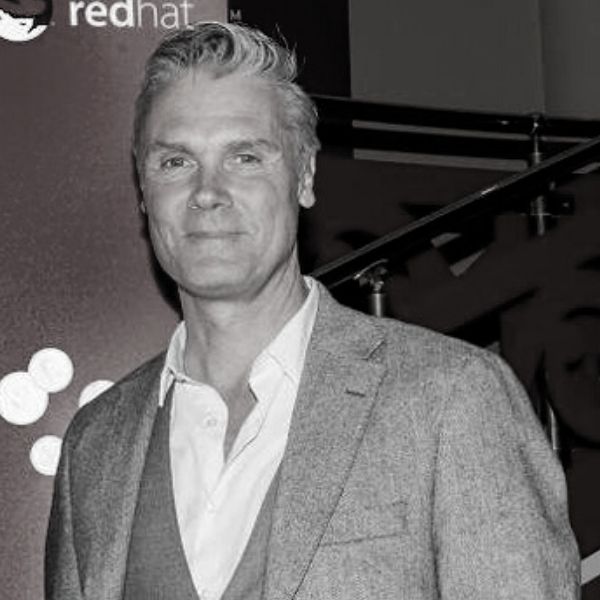





-Dec-13-2023-10-53-15-5032-AM.png)



-Jun-12-2023-01-23-11-7540-PM.png)




-Apr-01-2022-10-58-34-68-AM.png)








.png)









-Sep-01-2022-02-47-55-60-PM.png)
-Nov-22-2023-08-56-42-6802-AM.png)
.png)

Would you like to know more about CIONET Belgium, membership or partnership opportunities? Do you have feedback or any other question? Send us a message!
You can either send us a registered handwritten letter explaining why you'd like to become a member or you can simply talk to us right here!